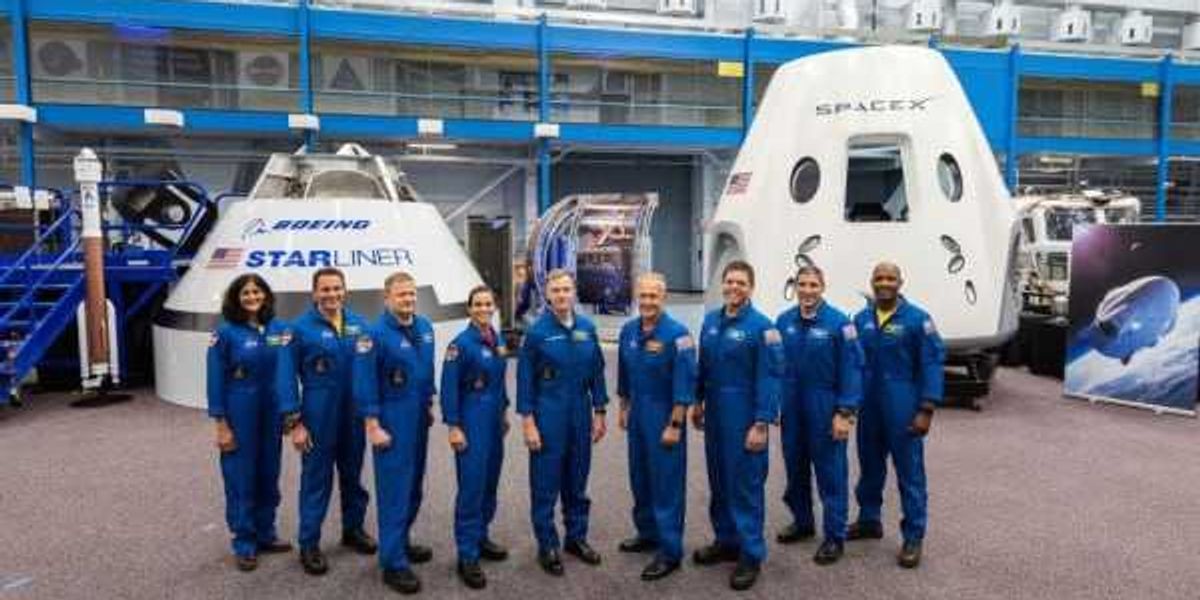Texas’ two U.S. senators, Republicans John Cornyn and Ted Cruz, have called for the Space Shuttle Discovery to be relocated from the National Air and Space Museum’s Steven F. Udvar-Hazy Center near Washington, D.C., to the visitors center at NASA’s Johnson Space Center in Houston. They say Houston is Discovery’s “rightful home” and note that provisions in the One Big Beautiful Bill Act call for the shuttle to be moved to Houston.
Moving the shuttle to Houston would reverse a decision made in 2011, when NASA awarded shuttles to museums in California, Florida, and New York instead of Space Center Houston. At the time, Houston Mayor Annise Parker blamed “political calculations” for not including the home of the Johnson Space Center as a shuttle home, even though the astronauts who flew the shuttle lived and trained in Houston.
But four Democratic U.S. senators — including U.S. Sen. Mark Kelly of Arizona, who is a retired NASA astronaut and a one-time Discovery commander — hope to block the shuttle’s relocation from Chantilly, Virginia, to Houston. They claim the move would waste taxpayer dollars and endanger the shuttle.
The latest development in the Discovery debate came last week in a letter written by Cornyn and Cruz. In the letter, the senators accuse the Smithsonian Institution, which runs the National Air and Space Museum, of inflating the estimated cost of relocating the shuttle to Houston.
The Smithsonian says the tab for relocating the shuttle could be $300 million to $400 million, with transportation alone totaling $50 million to $55 million. Legislation passed earlier this year allocates $85 million for the shuttle’s move.
In their letter to leaders of the Senate Appropriations Committee, Cornyn and Cruz state that the Smithsonian’s and NASA’s cost estimates are 10 times higher than those obtained from private-sector logistics companies. Furthermore, they accuse the Smithsonian of falsely claiming the shuttle’s wings would need to be taken off ahead of the spacecraft’s trip to Houston.
“This relocation honors both the intent of Congress and the legacy of America’s space program. It is time for the Space Shuttle Discovery [to] return to the community that helped make its missions possible,” wrote Cornyn and Cruz, referring to Johnson Space Center’s Mission Control operations and astronaut training program.
In their own letter to the Senate Appropriations Committee, the Smithsonian and NASA say they believe the shuttle would need to “undergo significant disassembly to be moved. Discovery is the most intact shuttle orbiter of the NASA program, and we remain concerned that disassembling the vehicle will destroy its historical value.” A lengthy article in Scientific American cites academics who support The Smithsonian’s view that the costs are higher than a private firm might estimate, diving into the logistical challenges of moving the large, relatively fragile spacecraft across the country.
In a letter dated September 26, Kelly — along with U.S. Sens. Mark Warner of Virginia, Tim Kaine of Virginia and Dick Durbin of Illinois — urge the Senate Appropriations Committee to block federal funding for Discovery’s relocation. They warn that the move would waste taxpayer dollars, risk permanent damage to Discovery, and lead to fewer people visiting the spacecraft.
In their letter, the four lawmakers peg the cost of bringing Discovery to Houston at over $375 million. That number includes more than $50 million for the move itself, and another $325 million for planning, new facilities, and exhibit reconstruction.
“Dedicating hundreds of millions of taxpayer dollars to move an artifact that is already housed, displayed, and preserved in a world-class facility is both inefficient and unjustifiable,” the four senators wrote.
According to the Smithsonian, Discovery spent 365 days in space — the longest period of any NASA shuttle. Discovery entered service in 1984 and was retired in 2011. It’s been housed at the Smithsonian facility in Virginia since 2012.
Space Center Houston, the Smithsonian affiliate that serves as the visitors center for the Johnson Space Center, would likely be the future home of Discovery.
In a statement issued this summer, Space Center Houston said it had not commissioned independent estimates of relocation costs, according to Roll Call. Rather, Space Center Houston is merely focused on “planning a world-class home for Discovery.”
“This opportunity aligns naturally with our long-term plans,” Keesha Bullock, a spokeswoman for Space Center Houston, told Roll Call.

